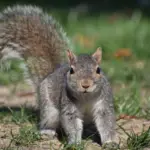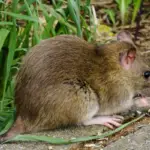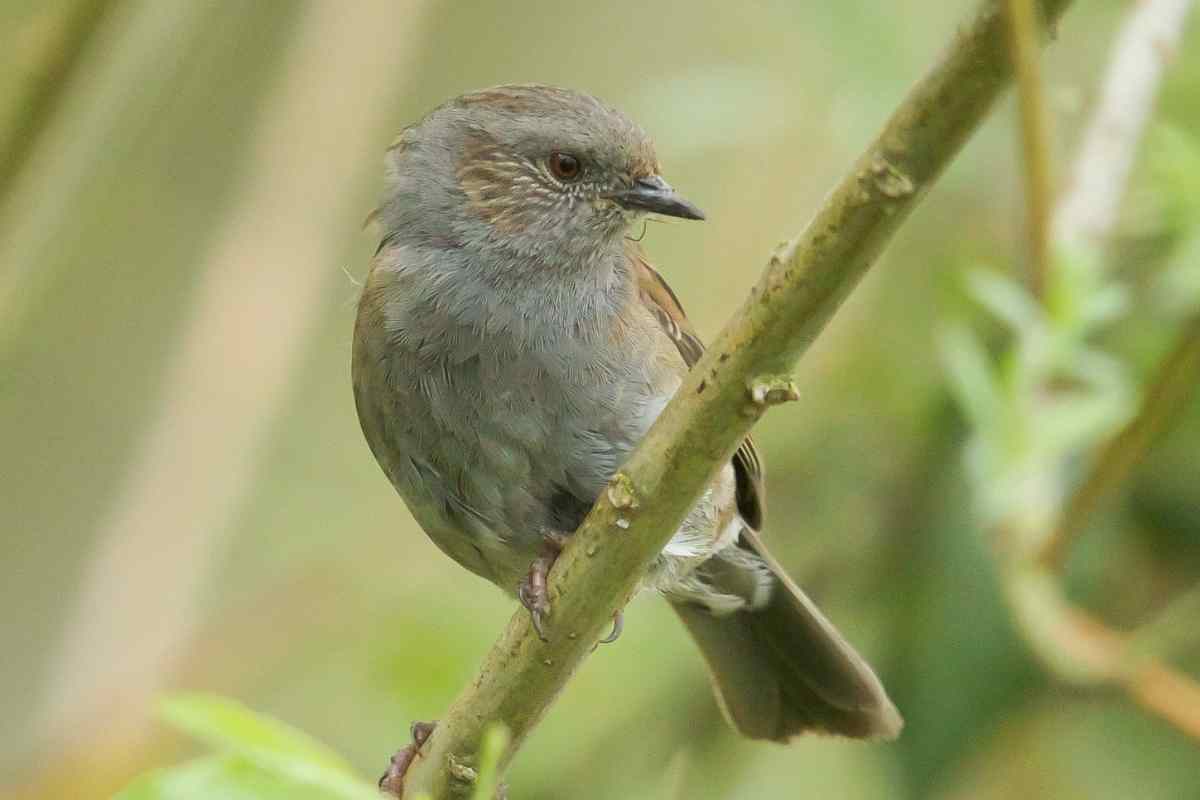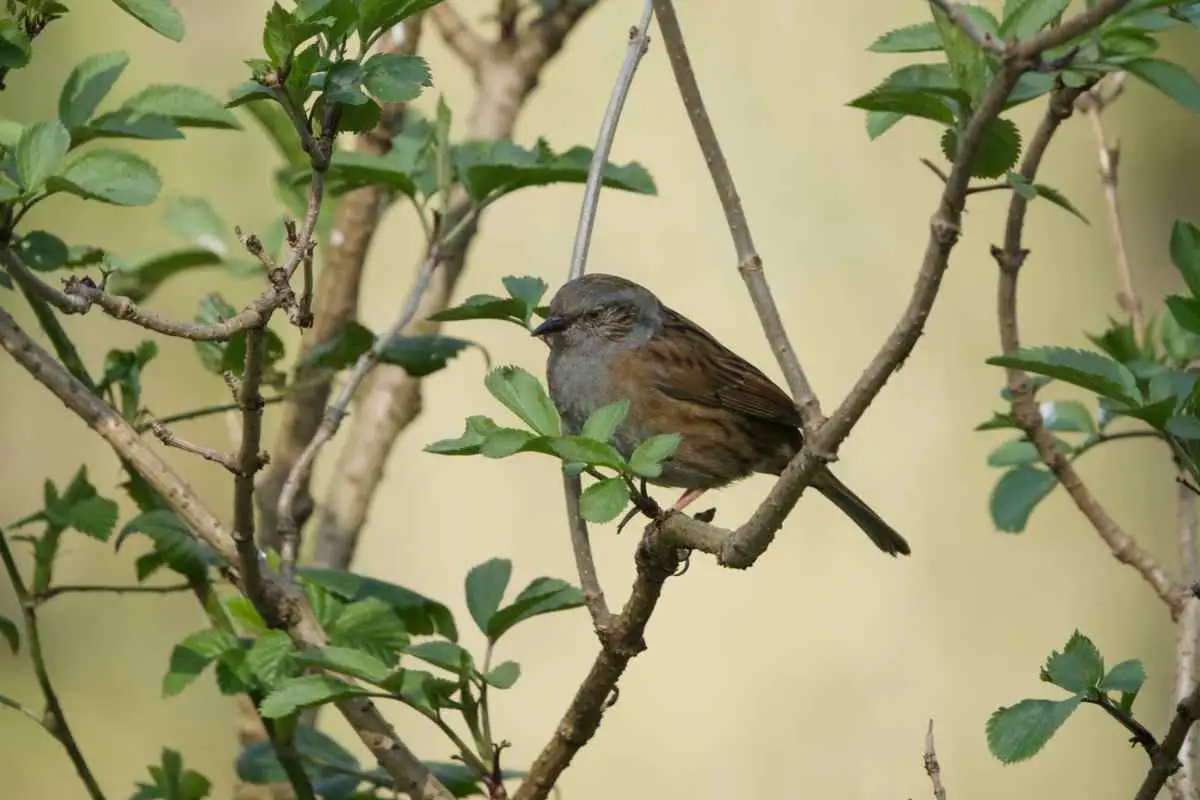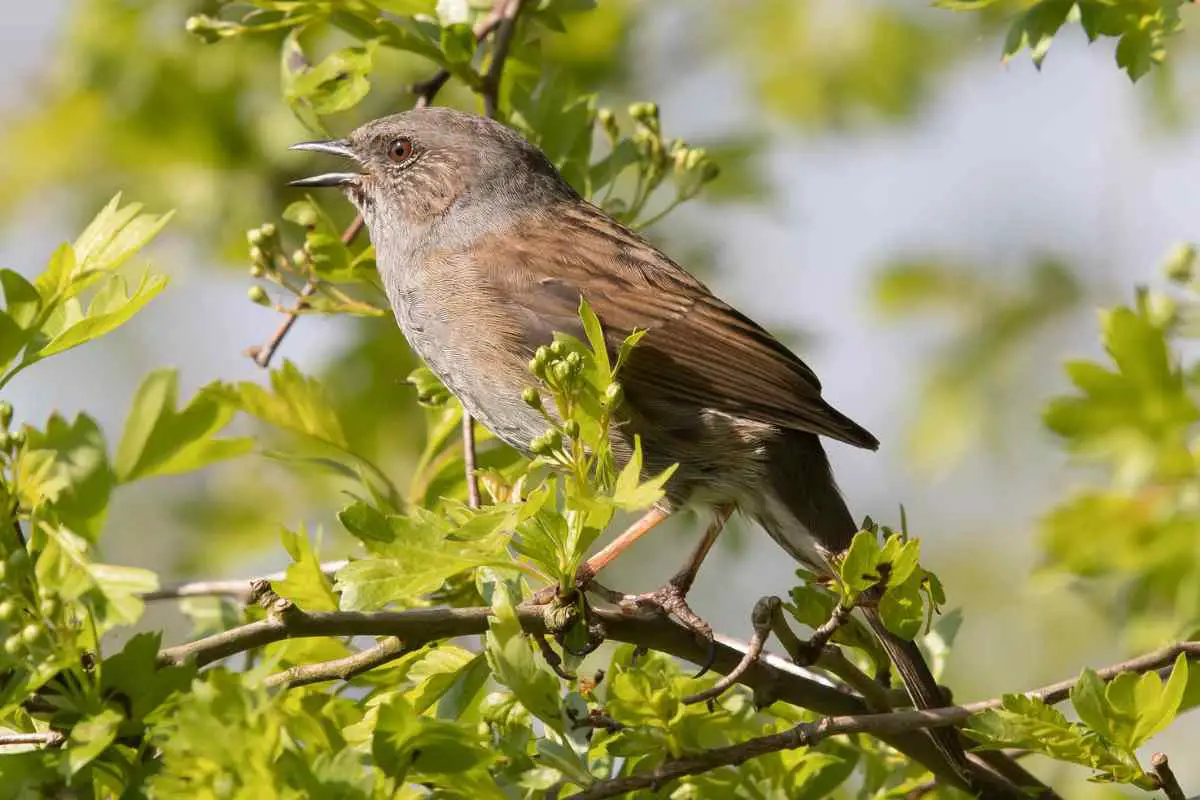Squirrels are notorious for their love of digging up bulbs and eating plants in gardens.
It can be frustrating to spend time and money planting and caring for a garden, only to have it destroyed by these furry critters.
Fortunately, there are several methods to deter squirrels from eating plants and protect your garden.
One effective way to stop squirrels from digging up bulbs and plants is to use repellents.
Cayenne pepper, peppermint oil, and predator urine are all effective natural repellents that can be applied to the soil or plants.
Another option is to use physical barriers, such as mesh or aluminum foil, to protect bulbs and plants from being dug up.
These barriers can be placed over the soil or around individual plants, making it difficult for squirrels to access them.
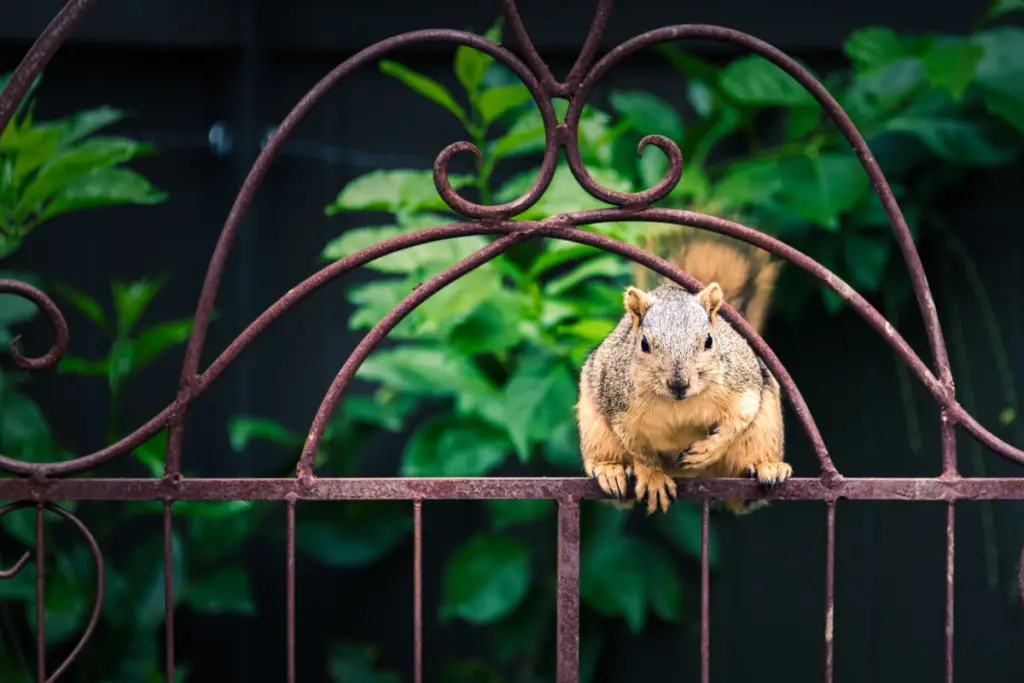
Table of Contents
Identifying Squirrel Damage
Squirrels can wreak havoc on gardens and landscaping.
They are notorious for digging up bulbs, eating fruits and vegetables, and gnawing on tree bark.
Identifying squirrel damage is the first step in preventing it.
Signs of Squirrel Damage
There are several signs of squirrel damage to look out for:
- Digging: Squirrels will dig holes in the ground to bury nuts and seeds. They may also dig up bulbs and tubers, leaving holes in the soil.
- Chewed Bark: Squirrels will chew on tree bark, especially in the winter when food is scarce. This can damage the tree and make it more susceptible to disease and pests.
- Missing Fruits and Vegetables: Squirrels will eat fruits and vegetables right off the plant, leaving behind half-eaten produce or nothing at all.
- Missing Birdseed: Squirrels are notorious for raiding bird feeders. If your birdseed disappears quickly, squirrels may be the culprit.
- Nesting Materials: Squirrels will collect twigs, leaves, and other materials to build their nests. If you see piles of these materials in your garden or yard, squirrels may be nesting nearby.
By identifying these signs of squirrel damage, you can take steps to prevent further damage to your garden and landscaping.
Preventative Measures
When it comes to stopping squirrels from eating plants, there are several preventative measures that can be taken. This section will cover physical barriers, natural deterrents, and repellents.
Physical Barriers
One effective way to prevent squirrels from eating plants is to use physical barriers.
This can include placing wire mesh over the soil or around the plant, using bird netting, or even building a small fence around the garden.
The key is to make sure that the barrier is sturdy enough to keep the squirrels out, but also allows the plant to receive adequate sunlight and water.
Natural Deterrents
Another approach to preventing squirrels from eating plants is to use natural deterrents. This can include planting certain types of plants that squirrels don’t like, such as daffodils, hyacinths, or alliums.
Additionally, some gardeners have had success using predator urine or hair around the plants, as the scent can deter squirrels.
Repellents
Finally, there are several types of repellents that can be used to keep squirrels away from plants.
Some gardeners have had success using cayenne pepper, garlic, or even vinegar as a spray around the plants.
Others have used commercial repellents that contain ingredients like capsaicin or castor oil. It’s important to note that while repellents can be effective, they may need to be reapplied regularly to maintain their effectiveness.
In conclusion, there are several preventative measures that can be taken to stop squirrels from eating plants.
Whether using physical barriers, natural deterrents, or repellents, it’s important to find a solution that works for your specific garden and situation.
By taking proactive steps, gardeners can enjoy their plants without having to worry about pesky squirrels.
Protecting Specific Plants
Squirrels can be a nuisance to gardeners, especially when they start to eat the plants. Here are some tips to protect specific plants from squirrels.
Protecting Flower Beds
Flower beds are especially vulnerable to squirrel damage. Squirrels love to dig up bulbs and eat flowers. Here are some ways to protect flower beds:
- Cover the flower bed with chicken wire or mesh. This will prevent squirrels from digging up the bulbs and eating the flowers.
- Plant daffodils, alliums, or other bulbs that squirrels don’t like to eat.
- Use a squirrel repellent spray. These sprays are available at most garden centers and can be effective in deterring squirrels.
Protecting Vegetable Gardens
Squirrels are attracted to vegetable gardens because they love to eat fresh produce. Here are some ways to protect vegetable gardens:
- Install a fence around the garden. This will keep squirrels out.
- Use raised beds. Squirrels have a harder time getting into raised beds than they do with traditional gardens.
- Use a squirrel repellent spray. These sprays are available at most garden centers and can be effective in deterring squirrels.
Protecting Fruit Trees
Squirrels love to eat fruit, especially apples and peaches. Here are some ways to protect fruit trees:
- Wrap the trunk of the tree with metal flashing. This will prevent squirrels from climbing up the tree.
- Install a squirrel baffle on the trunk of the tree. This will prevent squirrels from climbing up the tree.
- Use a squirrel repellent spray. These sprays are available at most garden centers and can be effective in deterring squirrels.
Overall, protecting specific plants from squirrels requires a multi-pronged approach.
Gardeners should use a combination of deterrents, including fencing, repellent sprays, and planting squirrel-resistant plants.
By taking these steps, gardeners can protect their plants from squirrel damage.
Humane Squirrel Control
Squirrels can be a nuisance to gardeners, but there are humane ways to control their activity without harming them. Here are some effective methods for keeping squirrels away from your plants:
1. Use Repellents
Squirrels are deterred by strong smells, so using natural repellents can be an effective way to keep them away from your plants.
Peppermint oil, cayenne pepper, and garlic are all great options. You can sprinkle these around the base of your plants or mix them with water and spray them on the leaves.
Or try the product below that we recommend.
Prices pulled from the Amazon Product Advertising API on:
Product prices and availability are accurate as of the date/time indicated and are subject to change. Any price and availability information displayed on [relevant Amazon Site(s), as applicable] at the time of purchase will apply to the purchase of this product.
2. Install Physical Barriers
Installing physical barriers around your plants can be an effective way to keep squirrels away.
Chicken wire or mesh can be wrapped around the base of your plants to prevent squirrels from digging them up.
You can also use plastic netting to cover garden beds and keep squirrels from getting in.
Prices pulled from the Amazon Product Advertising API on:
Product prices and availability are accurate as of the date/time indicated and are subject to change. Any price and availability information displayed on [relevant Amazon Site(s), as applicable] at the time of purchase will apply to the purchase of this product.
3. Plant Squirrel-Resistant Plants
Some plants are less appealing to squirrels than others. Planting these types of plants can help deter squirrels from eating your garden.
Some examples of squirrel-resistant plants include daffodils, hyacinths, and alliums.
4. Provide Alternative Food Sources
Squirrels are attracted to gardens because they are a source of food. Providing alternative food sources can help draw squirrels away from your plants.
You can put out bird feeders or squirrel feeders filled with nuts or seeds to keep them occupied.
By using these humane methods, you can effectively control squirrel activity in your garden without causing harm to these furry creatures.
Conclusion
In conclusion, there are several effective ways to stop squirrels from eating plants in your garden.
By combining some of the methods discussed in this article, you can create a squirrel-proof garden that will keep your plants safe and healthy.
One of the most effective ways to deter squirrels is to use repellents such as cayenne pepper or peppermint oil.
These natural substances are harmless to plants and animals but repel squirrels due to their strong scent.
Additionally, planting certain types of bulbs such as daffodils, alliums, and snowdrops can also help keep squirrels away.
Another effective method is to use physical barriers such as mesh netting or aluminum foil.
These barriers make it difficult for squirrels to access your plants and can be especially useful for potted plants or small garden beds.
It is important to note that no single method is foolproof, and it may take some trial and error to find the best solution for your particular garden.
However, by using a combination of these methods and remaining vigilant, you can successfully deter squirrels and protect your plants.
Overall, with a little effort and creativity, it is possible to create a squirrel-proof garden that will allow you to enjoy your plants without worrying about them being eaten by squirrels.
- How to Build a Planter Box for Bamboo: A Step-by-Step Guide
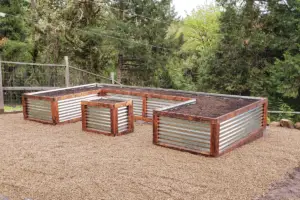
- Can Robotic Lawnmowers Handle Steep Slopes?
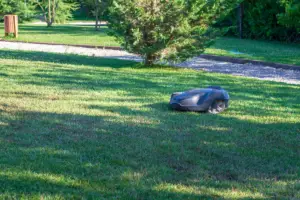
- Do You Need a Specific Lawn for a Robotic Lawnmower? Expert Advice
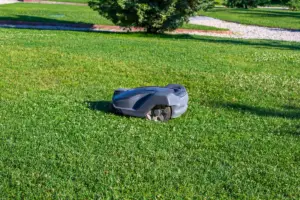
- Are Robotic Lawnmowers Safe for Pets and Children? Safety Features of Robotic Lawnmowers
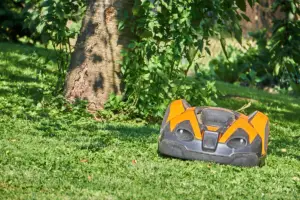
- Why Use Robotic Lawnmowers? Advantages of Using a Robotic Lawnmower
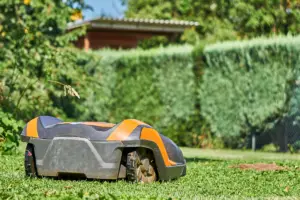
- Is the GARDENA SILENO City 300 Cordless or Corded? A Clear Answer
























